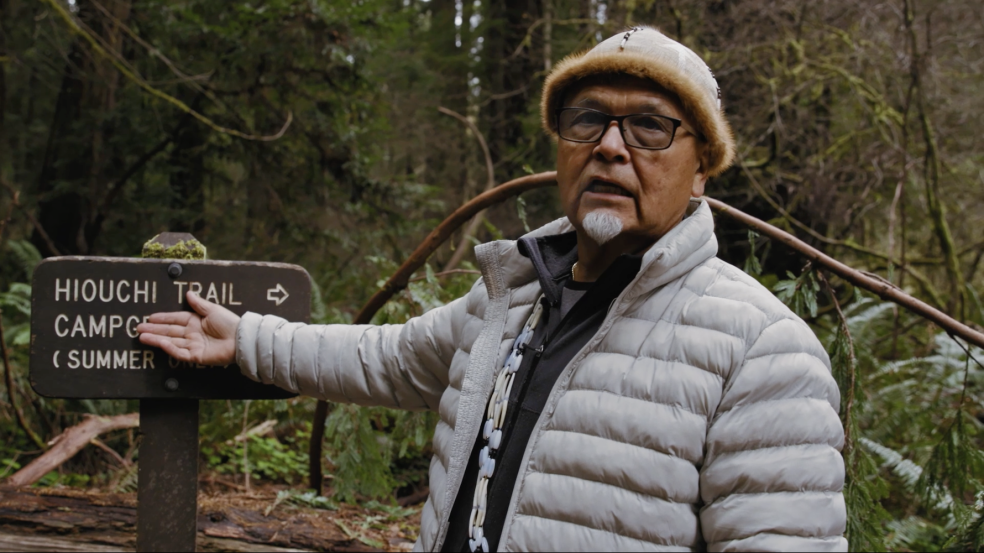
Language is the lifeline of a culture. As with most Indigenous nations in North America, the Tolowa Dee-ni' Nation in Del Norte County in Northern California has struggled with its loss since settler colonialism began erasing it in the late 1800s. However, significant work is being done by key members of the community to bring language back, and with it, the vibrant Tolowa Dee-ni' culture.
In 2021, the Tolowa language division partnered with Cal Poly Humboldt’s Sponsored Programs Foundation to produce a documentary to tell their important story. Directed by Art + Film Professor Dave Jannetta, and produced by Art + Film Lecturer Nicola Waugh, and Tolowa Dee-ni’ Nation Waatr'vslh'a~ (Language and Culture) Manager, Marva Sii~xuutesna Jones, 'A-t'i Xwee-ghayt-nish: Still, We Live On tells the important story of Tolowa language resilience and revival for future generations.
Loren Me'-lash-ne Bommelyn, the central subject of the film, is a prolific leader in the Tolowa Dee-ni' community. Working to rebuild the cultural devastation that his parents and grandparents faced, he dedicated his life to learning and teaching the Tolowa language and became the first credentialed Indian Language teacher in California in 1980.
The 40-minute film premiered at the 2023 Maoriland Film Festival in New Zealand, followed by the RiverRun International Film Festival in North Carolina, and the Native Spirit Film Festival in London.
From Nov. 22-29, audiences will be able to stream 'A'-t'i Xwee-ghayt-nish: Still, We Live On online along with 11 other short and feature films in the 2024 Native Cinema Showcase, presented by the Smithsonian Institution’s National Museum of the American Indian.
“This is an incredible opportunity for national exposure for the film,” says producer Marva Sii~xuutesna Jones. “Our Tolowa Dee-ni’s language story is difficult, but hopeful, and we want other nations to be inspired by the resilience and progress our community has made.”
Following the Native Cinema Showcase, the film will be released for educational distribution by Collective Eye Films.
For more information, visit the 'A'-t'i Xwee-ghayt-nish: Still, We Live On website